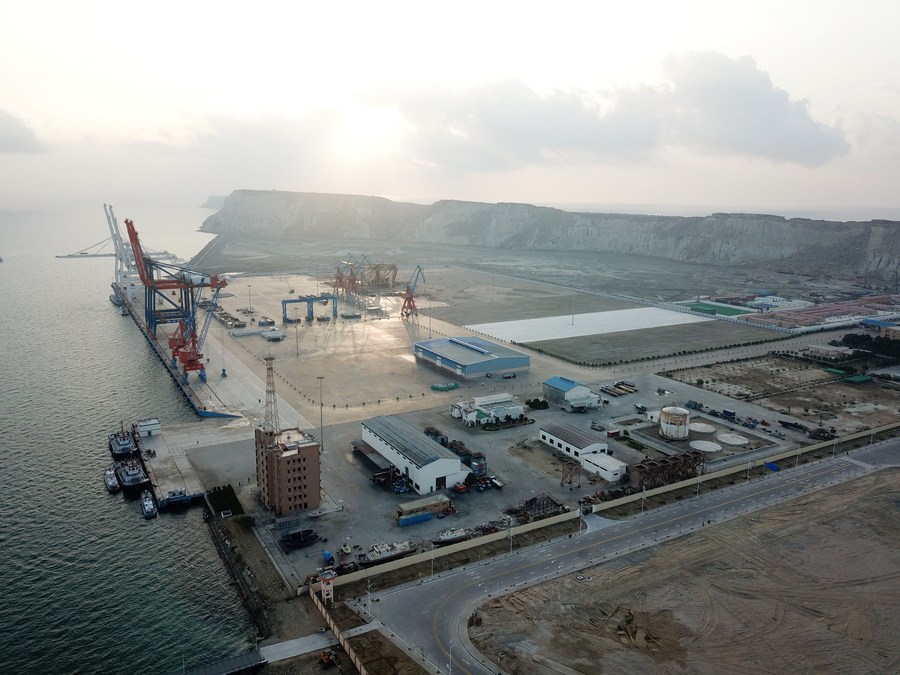Pakistan-China industrial cooperation enters a new phase
The China-Pakistan Economic Corridor (CPEC) is a flagship project of the Belt and Road Initiative (BRI). Governments from both countries are committed to making it a success story and a role model for other nations. CPEC is an open-ended, flexible initiative, encompassing all sectors of the economy, including infrastructure, power generation and transmission, agriculture, as well as the social, health and industrial sectors.
Industrialization is one of Pakistan's priorities, and it is widely acknowledged that industrialization will rapidly boost economic development. Pakistan is blessed with an abundance of raw materials – minerals, mines, and agriculture. Pakistan's population is made up of 70% young people, which makes it a vast workforce for industrialization. With a population of around 220 million, the domestic market can justify industrialization. Above all, Pakistan is located at an important geostrategic location where major trade routes pass through, and Pakistan possesses an important overseas international market for exports. The Middle East, East Asia, Central Asia, and Africa are the country’s traditional export markets.

Photo taken on Jan. 29, 2018 shows a view of Gwadar Port in southwest Pakistan's Gwadar. (Xinhua/Ahmad Kamal)
The government of Pakistan has introduced attractive policies offering tax rebates and tax incentives to entrepreneurs. Special measures are taken to facilitate industrialization and provide protection to industrialists.
Making the most of these flexible and attractive policies, Pakistani and Chinese entrepreneurs are signing joint ventures. Many Chinese investors have recently allocated land for the setting up of industry in various Special Economic Zones (SEZs). Chinese investment is essential for Pakistan's ailing economy. Industrialization will create new jobs. Pakistan is producing around 1.5 million university graduates every year, all of whom are looking for jobs.
Industrialization will help reduce import bills, which have been a burden on Pakistan's economy. On the other hand, excess production will be exported to earn foreign exchange, something Pakistan greatly needs.
Chinese entrepreneurs with an abundance of capital are experienced and technically very sound. Chinese investors are exploring overseas markets in a bid to "go global", and Pakistan is an ideal destination for them. More and more Chinese investors are expected to invest in Pakistan’s industrial sector.
Prime Minister Imran Khan is likely to inaugurate the Rashakai Special Economic Zone very soon, said officials from the Khyber Pakhtunkhwa Economic Zones Development and Management Company (KP-EZDMC) on Wednesday.
The Rashakai Special Economic Zone is a flagship project of the KP government that is being executed under the CPEC.
Final touches are being made to the arrangements for the inauguration, and the Prime Minister has been invited as the main guest for the occasion. The project is situated on the Peshawar-Islamabad Motorway.
The project has received an unprecedented response from both local and foreign investors, with 1,800 investors having applied for the 1,000 acres of land available, looking for thousands of acres of land to establish industrial units in the zone.
A Chinese company will also be making an investment of US$466 million in the Rashakai Special Economic Zone.
Besides an investment potential of Rs.4 trillion, the project will generate thousands of employment opportunities for the local population.
Rashakai was one of the 37 zones proposed as Special Economic Zones (SEZs) in Pakistan's provinces announced under the CEPC.
Rashakai SEZ enjoys a unique competitive advantage due to its close proximity to the CPEC route's first juncture, close location with Peshawar, Islamabad airports, and ML-I, besides being a significant resource manufacturing base that makes it an attractive destination for domestic and international investors to capture local and international markets.
Zamir Ahmed Awan is a senior fellow with the Center for China and Globalization (CCG) and a sinologist at the National University of Sciences and Technology in Pakistan. E-mail: [email protected].
Photos
Related Stories
- China, Pakistan sign memorandum on translation, publication of classics
- CPEC forges ahead in 2020
- Pakistan invites Afghan businessmen to join CPEC
- China, Pakistan resolute in promoting CPEC construction: spokesperson
- Railway project under CPEC to boost Pakistan's exports: PM
- CPEC economic zone to generate 1 bln USD investment in Pakistan's Sindh province
- CPEC achieves major progress despite COVID-19: Pakistani official
- Pakistani foreign secretary sees CPEC a transformational project
- CPEC with vision of connectivity, openness: Pakistani PM
- China-Pakistan Economic Corridor projects help improve local people's livelihood
Copyright © 2021 People's Daily Online. All Rights Reserved.










